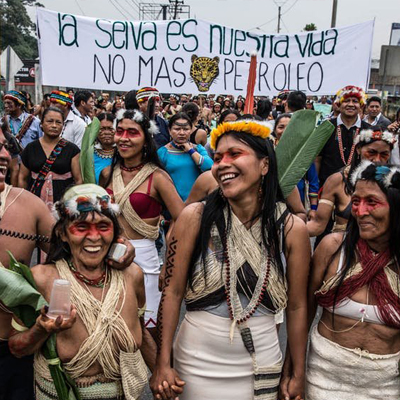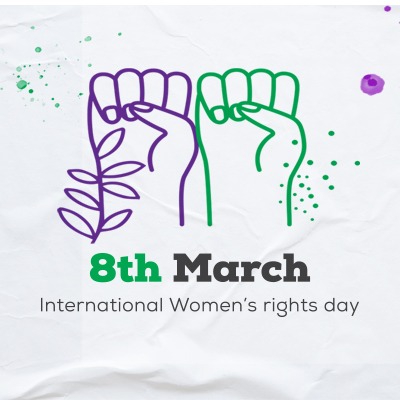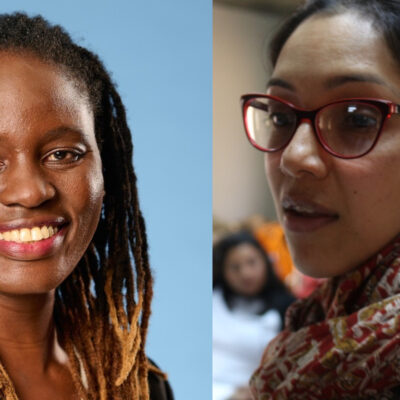30 years standing: anniversary of the struggle against Chevron-Texaco in Ecuador
Interview with Ramiro Ortiz, sub-coordinator of the Union of People Affected by Texaco.

On November 3rd 1993, a group of Indigenous People and peasants from the northern Ecuadorian Amazon filed a lawsuit against one of the world’s most powerful transnational oil companies, Texaco (now Chevron), for environmental crimes. At that moment, the Union of People Affected by Texaco (UDAPT) was officially created.
The lawsuit is the founding milestone of an organisation that has been fighting for life for 30 years, and is also perhaps the main reason for its international recognition. The big screens at the latest concert in Ecuador of former Pink Floyd frontman Roger Waters showed “Chevron, you have to pay the people now, they sued you and you lost, you polluted the Earth, you owe them 9 billion dollars.” The court order these messages refer to was issued 11 years ago and ratified in 2018, but there are still 30,000 victims waiting for it to be enforced.
UDAPT also supports another emblematic case of the socio-environmental struggle, the case of gas flaring, in which nine girls affected by the burning of liquefied gas sued the State of Ecuador. Just like the lawsuit against Chevron, the ruling of this case, which is in favour of eliminating the gas flares, is not being respected.
When life is at stake, giving up is not an option
In three decades UDAPT has never given up. It has remained united and has strengthened its grassroots organising. Since its inception, UDAPT has been made up of six Indigenous nationalities: Quichua, Shuar, Siona, Siekopai, Cofán and Huaorani, as well as peasants settled in the area. They elect their representatives every four years and hold regular assemblies. They also have secretariats for women, youth and the elderly, as well as ongoing health, education and research projects in the territories.
On their 30th anniversary, we spoke with Ramiro Ortiz, sub-coordinator of UDAPT, member of the Cofán Indigenous People. The leader made reference to the damage caused by Texaco since its arrival. Although the transnational company left the Ecuadorian Amazon in the 1990s, it had been exploiting the lands of Sucumbíos and Orellana provinces since the 1970s and its harmful effects continue today: toxic waste, contamination of rivers, air, soil and underground soils, loss of biodiversity, extremely high rates of cancer in the population, forced displacements and destruction of cultures.
Ortiz believes that this 30-year process is sustained by the union of diverse Indigenous nationalities, who put aside their different languages, ways of life and worldviews, to seek a just and comprehensive reparation for all communities and their future generations.
Against racism and corporate impunity
“After 30 years of litigation, after obtaining four rulings in favour of the inhabitants of the Amazon, with 16 judges finding Chevron guilty of the damage caused in the Northern Ecuadorian Amazon, today with an arbitration award based on a Bilateral Investment Protection Agreement, the aim is to leave the more than 30,000 people affected by the toxins left behind by Chevron defenceless.”
UDAPT’s latest statement makes it clear in just five lines that its struggle is also against transnational impunity, which is why the organisation is a member of the Global Campaign to Reclaim People’s Sovereignty, Dismantle Corporate Power and Stop Impunity.
4️⃣ weeks to the #BindingTreaty negotiations!
Corporations profit from their impunity while people are left without justice
We need the Treaty to protect people and prevent corporate violations of human rights@Pablofame from @udapt_oficial via @realworldradio @StopTNCimpunity pic.twitter.com/TzvIqBq2bL
— Friends of the Earth International (@FoEint) September 28, 2023
Ortiz reflected on this issue: “Despite having millions of dollars and thousands of lawyers, we won with the truth. You can see the joy in the different faces, that is something that cannot be bought”. The environmental defender also remembered María Aguinda, a Quichua woman who led the lawsuit against Chevron and died of cancer at the end of November, a disease that plagues the region because of pollution, according to UDAPT.
The sub-coordinator of the organisation highlighted, “We are not asking for money for ourselves or compensation, we are asking for reparations, and we have five main components. These are: clean water for the families, treatment for people with cancer, recovery of the Indigenous Peoples cultures, recovery of soils and subsoils to be able to plant and clean rivers and estuaries.”
The Chevron case is also a clear example of environmental racism, making UDAPT’s struggle an anti-racist struggle as well. Ortiz stated: “We all know that in the Amazon there are groups of Indigenous Peoples who have lived there for thousands of years. This has never been respected. (…) prior, free and informed consultations are not complied with, we are never consulted, this is a form of racism, because they believe that we are ignorant Indigenous People, that we don’t know about laws and rights.”
Solidarity and internationalism
UDAPT is a grassroots group, born and raised in the territories, but it has also aimed to build national and international alliances as part of its solidarity and internationalist work. Although they have been working together for several years, in November of this year UDAPT joined the world´s largest environmental federation Friends of the Earth International as a full member.
Press conferences, Toxic Tours, workshops in schools, mobilisations against violence against women and for Human Rights Day. To celebrate 30 years of resistance and to continue to make their struggle visible, UDAPT organised activities every day in November. The closing event was a mobilisation and a “resistance market” with handmade and organic products produced by locals. “It was very interesting to be able to represent and tell Chevron and the State that we are united and fighting for justice,” said Ortiz.
Cientos de campesinos e indígenas de las provincias de #Orellana y #Sucumbios organizados en la @udapt_oficial hoy expresan su coraje, lucha y resistencia contra #Chevron y la Intromisión del #Estado ecuatoriano. Exigimos al Estado respeto a nuestra seguridad Jurídica. pic.twitter.com/nvzbuWC5xR
— Pablo Fajardo M. (@Pablofame) December 2, 2023
UDAPT works with more than 130 communities. In addition to common struggles, each community faces its own battles because the territories are affected by various and sometimes differing activities or operations. In addition to oil exploitation and gas flaring, there is, for example, illegal hunting and monoculture plantations. There are also communities that were displaced and are now fighting to recover their territories.
Grassroots and intergenerational
2023 has only a few days left. Next year, UDAPT will still be standing up, fighting for dignified life and environmental justice as it has been doing since 1993. They are currently in litigation for the State to provide free medical care for cancer patients in their place of residence. This is why they sued the Amazon Technical Secretariat. “We are not asking them to give anything away, we are asking them to comply with the law.” At the end of the interview, Ortiz shared some good news: they have already won three times out of four.
“If we cannot continue this fight, our children will take it up, and our children’s children will continue it, as we have shown.” These words by Justino Piaguaje of the Siekopai nation perfectly illustrate what UDAPT was, is and will continue to be.






